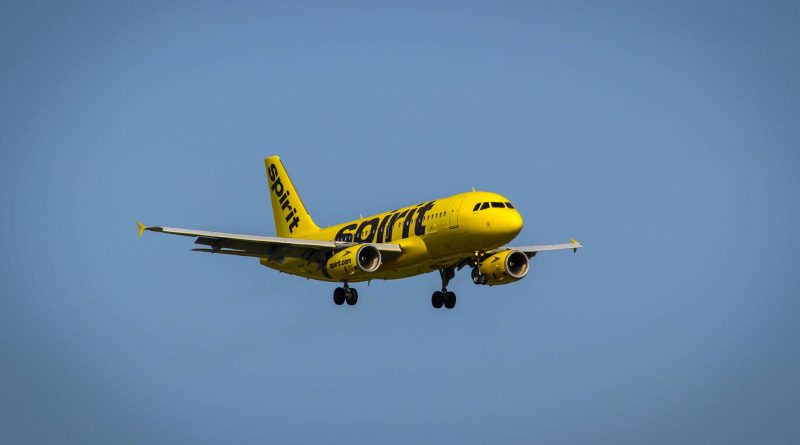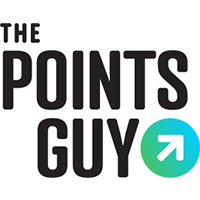Spirit relaunched its loyalty program today with cheap award flights and new cobranded cards
Spirit Airlines in the same sentence with free checked bags, free seat assignments and a (yellow glove) concierge service may sound like the set-up of a good joke, but it’s no joke at all. As of today, Spirit Airlines has launched an all-new frequent flyer program that comes with legitimate elite status levels, valuable perks and a gentler mileage expiration policy, among other changes.
Spirit Airlines had known for quite some time that its current frequent flyer program is, as the airline puts it, “dated,” but that’s now old news.
For more TPG news delivered each morning to your inbox, sign up for our free daily newsletter.
The airline that has long been aggressive with its no-frills pricing and ambitious with new routes is now competitive on the elite status front.
The basics of the new Free Spirit program
Before we get to what all is new, it’s helpful to have a touch of context of the old.
The previous Free Spirit program was launched in 2006 when the airline was small and young, with just 35 aircraft serving 29 cities. Back then, Spirit was operating more as a small but traditional airline than the ultra-low-cost carrier it would soon become.
While value could be found in the old mileage-based program (especially the 2,500-mile redemptions for cobranded Spirit credit cardholders), the program “underperformed,” according to Spirit. It certainly didn’t win any awards around these parts, either with quickly expiring miles, copious fees and the lack of valuable elite status levels.
Now firmly positioned as a larger and more established ultra-low-cost carrier, Spirit wanted to create a loyalty program that engaged its flyers at higher rates and was appealing enough to attract new customers to the airline. In fact, it wants to offer enough standout features to “surpass other programs,” as the airline told TPG.
This new program, which is revenue-based on both the earning and redemption side of the coin, has actual elite status tiers that come with tangible benefits; the ability to pool points with friends and family if you have elite status or a Spirit credit card; no blackout dates for redemptions; points that don’t expire for at least a year (and longer with qualifying activity or the credit card); redemptions that start at 2,500 points for all members; and the ability to earn points at a rate of up to 20 points per dollar spent.
So, is Spirit’s new frequent flyer program going to be enough to lure you to the ultra-low-cost carrier? Let’s dig in.
Related: Frequent flyer perks that travelers like the most
Earning points based on spending
In Spirit’s new program, miles are out and points are in.
As far as Spirit is concerned, award charts, distance-based zones and miles earned based on the distance flown have all gone the way of the fax machine. Following the precedent set by many other U.S. airline frequent flyer programs that have also undergone revenue-based changes in recent years, Spirit now awards redeemable and elite-qualifying points, known as Status Qualifying Points (SQPs), based on how much you spend with the airline.
Spirit’s award flight redemption prices are now also tied to the cash fares — which we will get to in a moment. But there’s a very Spirit twist to all of this.
It’s no secret that Spirit makes a significantly larger percentage of its revenue on ancillary fees than the major U.S. airlines.
As such, its new program awards points on the dollars spent on those seat assignment charges, bag fees and more at double the rate you spend on the base airfare. That’s actually good news for many Spirit travelers, since bag and seat assignment fees can easily cost more than your actual ticket’s base fare — especially for those of us who like to upgrade to the Big Front Seats.
| Free Spirit elite level | Points earned per dollar on airfare | Points earned per dollar on ‘extras’ |
| Free Spirit member | 6x | 12x |
| Free Spirit Silver | 8x | 16x |
| Free Spirit Gold | 10x | 20x |
Related: Everything to know about flying Spirit Airlines
New Spirit elite status tiers
For the first time, Spirit Airlines has actual elite status tiers with benefits such as free seat assignments and bag fee waivers.
The airline has made the entry threshold for Silver status attainable to travelers who spend at least $2,000 with the airline each year (2,000 SQPs). Gold status requires 5,000 status qualifying points (SQPs), which could be earned with $5,000 in eligible spending with Spirit in a year.
Unfortunately, the earning rate of elite-qualifying SQPs is flat at 1 SQP per eligible dollar spent. Unlike Spirit’s redeemable points, those “extras” don’t add up faster than airfare when it comes to the elite status qualifying points.
Flyers with the $79 per year cobranded Free Spirit Travel More Mastercard can earn additional SQPs at a rate of 1 SQP per $10 charged to the card.
That would mean Silver status could be achieved with $20,000 in annual charges on the Spirit credit card and Gold with $50,000 in charges, assuming no other Spirit spending. (Coincidentally or not, that’s the same amount of spending it takes to unlock competitor Frontier Airlines’ first and second tiers of elite status with its cobranded credit card.)
While there are certainly some real money-saving perks at the Free Spirit Silver level, Gold is where things get good.
© The Points Guy
Spirit Big Front Seats (Photo by Javier Rodriguez / The Points Guy)
Free Spirit Silver status
Earned at the rate of 2,000 SQPs per year, these are the top perks with Free Spirit Silver status:
- Earn points at an increased rate of 8x on fares and 16x on extras
- Ability to host a points pool
- Redemption fee waiver when redeeming points
- Free seat selection at check-in, excluding exit rows and the Big Front Seats
- Free exit row seat selection available three hours before departure
- Free same-day standby
- Shortcut boarding
- Dedicated guest care phone number
Free Spirit Gold status
Unlocked with 5,000 SQPs earned each year, Free Spirit Gold status has all of the Silver-level perks, plus:
- Earn points at an increased rate of 10x on fares and 20x on extras
- Free seat selection at booking, including the exit row, but excluding the Big Front Seats
- Free full-sized carry-on bag
- First checked bag free
- Free snack and drink on board
- Free Spirit Airlines Flight Flex (the ability to modify your itinerary once online, up to 24 hours before departure with no fees)
Unfortunately, it seems the majority of benefits will only be relevant to the traveler holding elite status and not others on the reservation, except for shortcut boarding.
Related: Credit cards that allow you to short-cut to airline elite status
Changes to Spirit credit card perks
Spirit Airlines now has two cobranded credit cards issued by Bank of America — the revamped and rebranded Free Spirit Travel More World Elite Mastercard and a no-annual-fee Free Spirit Travel Mastercard. Historically, the best Spirit card perk has been the ability to unlock 2,500-mile discounted awards. But now, there are different perks since the 2,500 point awards are available to all Free Spirit members.
New Spirit credit card perks will include:
- Spirit points will not expire for cardholders, even without activity
- Redemption fee waiver for those with the Free Spirit Travel More World Elite Mastercard
- Cardholders with either card can create points pooling for themselves and up to eight others
- 25% rebate on inflight food and beverage purchases when charged to the cards
- Shortcut Zone 2 boarding
- Earn 1 SQP toward status for every $10 charged to Free Spirit Travel More World Elite Mastercard
- Earn a $100 companion voucher flight each year with Free Spirit Travel More World Elite Mastercard with $5,000 in spending on the cards
Related: Save money by booking Spirit flights at the airport
The Free Spirit Travel More World Elite Mastercard has a welcome bonus of 40,000 bonus points and a $100 companion voucher after $1,000 in spending on a new account in the first 90 days. The $79 annual fee is waived the first year.
The no annual fee Free Spirit Travel Mastercard has a welcome bonus of 10,000 bonus points after $500 in spending in the first 90 days on new accounts.
How much do Spirit award flights cost now?
Since Spirit no longer has an award chart, fares cost a variable number of points based on the day and route.
While we will continue to test and refine this info in the coming days and weeks, our initial tests reveal that award flights do indeed start at 2,500 points across a wide number of dates and routes. As would be expected in a revenue-based model, the cheapest flights to book with cash in that $20 – $30 range each direction of travel are the ones most likely to cost just 2,500 points plus applicable taxes and fees.
Award prices go up in 500 point increments starting from that 2,500 point starting point based (at least loosely) on the base fare.
In general, we saw the value of the Spirit points falling in the 1 – 1.2 cent range in our early tests for flights that aren’t impacted by award redemption fees. However, that’s a very early estimate, with some outliers falling above and below that common range.
Speaking of fees, Spirit’s site lists redemption fees at $0 for flights booked at least 28 days before departure and $50 for those booked within 28 days, which would dramatically impact the value of points on those flights subject to that fee. In fact, that fee would cost more than the cash price of many Spirit flights at current fares, making redeeming points a terrible idea in those cases.
However, the website was not displaying that fee in our tests today. Whether that was a temporary glitch or we simply couldn’t get far enough in the booking process without sufficient points to book in our account to see the fee, there will be ways to avoid it. On an ongoing basis, those with Spirit Silver or Gold elite status, and those with eligible Free Spirit credit cards, are exempt from award booking fees.
Related: When to use points vs. cash for airline tickets
Changes to the Spirit $9 Fare Club
Along with the frequent flyer program and cobranded credit card changes, Spirit’s $9 Fare Club has also been reinvented.
Beginning today, the $9 Fare Club will become the Spirit Saver$ Club. Existing members will automatically be transferred to the new program.
Spirit Saver$ Club members — and up to eight others on the reservation — will have access to:
- Discounted fares
- Up to 50% off checked and carry-on bags
- Discounts on seat assignments, including the Big Front Seats
- Discounts on additional perks, such as Shortcut boarding and Flight Flex
The savings on seat assignments will be an all-new perk for members of Spirit’s discount club. Note that, unlike most frequent flyer program benefits, these perks can be used for friends and family members who travel with you. This makes the Spirit Saver$ Club’s utility similar to Frontier’s Discount Den (and both can be great uses for annual credit card airline and travel credits).
The Spirit Saver$ Club is currently available for $69.95 for 12 months, $99 for 18 months or $129.90 for 24 months.
Related: Why having the Spirit credit card isn’t crazy
Bottom line
A few more tweaks come with this new program, such as a Points + Cash option rolling out in March 2021. With that, you’ll be able to redeem as few as 1,000 points with a cash co-pay to cover the balance of the cost. Additionally, those with existing Free Spirit account balances should have seen the miles in their accounts convert to points at a 1:1 ratio.
Back in 2019, I wrote a wish list of what I’d love to see from a revamped Free Spirit and Spirit came through with an all-new valuable program that isn’t far off from that dreamed-up reality.
While I would have loved to see a free pathway to the Big Front Seats, the ability to pool elite status credits and share status perks with more people on the reservation, the new program looks solid.
At a minimum, it will now be worth it for me to open Free Spirit accounts for my kids to pool into one main account. Before, it wasn’t even worth the time to earn those miles, as they expired too quickly. Now they’re good for at least 12 months but can be extended beyond that with account activity or by having the co-branded credit card or similar.
It will make sense for regular Spirit flyers who travel (or spend) enough to approach the $2,000 and $5,000 thresholds to travel more with Spirit to surpass those elite status thresholds. What I’m less sure about is how many travelers truly spend $5,000 every year with Spirit Airlines, but I’m sure Spirit has run that math. I may fly Spirit two or three times some years, but because fares are so low (and I avoid as many fees as I can — other than those Big Front Seats), I doubt those trips amount to more than $1,000 in annual spending on tickets and fees.
What may actually be even more rewarding to occasional Spirit travelers is the increased list of benefits for the Spirit Saver$ Club. This has the potential to become as necessary to a Spirit traveler as the Discount Den is to a Frontier flyer and TPG will dig more into the new program in the coming days.
The Spirit of years past is gone.
Now, the airline has put on the yellow gloves to welcome and reward the flyers who spend the most with them the perks that make the airline’s program competitive for those who want money-saving frequent flyer perks, but not at the expense of low fares.
Feature photo courtesy of Spirit Airlines
SPONSORED: With states reopening, enjoying a meal from a restaurant no longer just means curbside pickup.
And when you do spend on dining, you should use a credit card that will maximize your rewards and potentially even score special discounts. Thanks to temporary card bonuses and changes due to coronavirus, you may even be able to score a meal at your favorite restaurant for free.
These are the best credit cards for dining out, taking out, and ordering in to maximize every meal purchase.
—
Editorial Disclaimer: Opinions expressed here are the author’s alone, not those of any bank, credit card issuer, airlines or hotel chain, and have not been reviewed, approved or otherwise endorsed by any of these entities.
Source: Read Full Article




